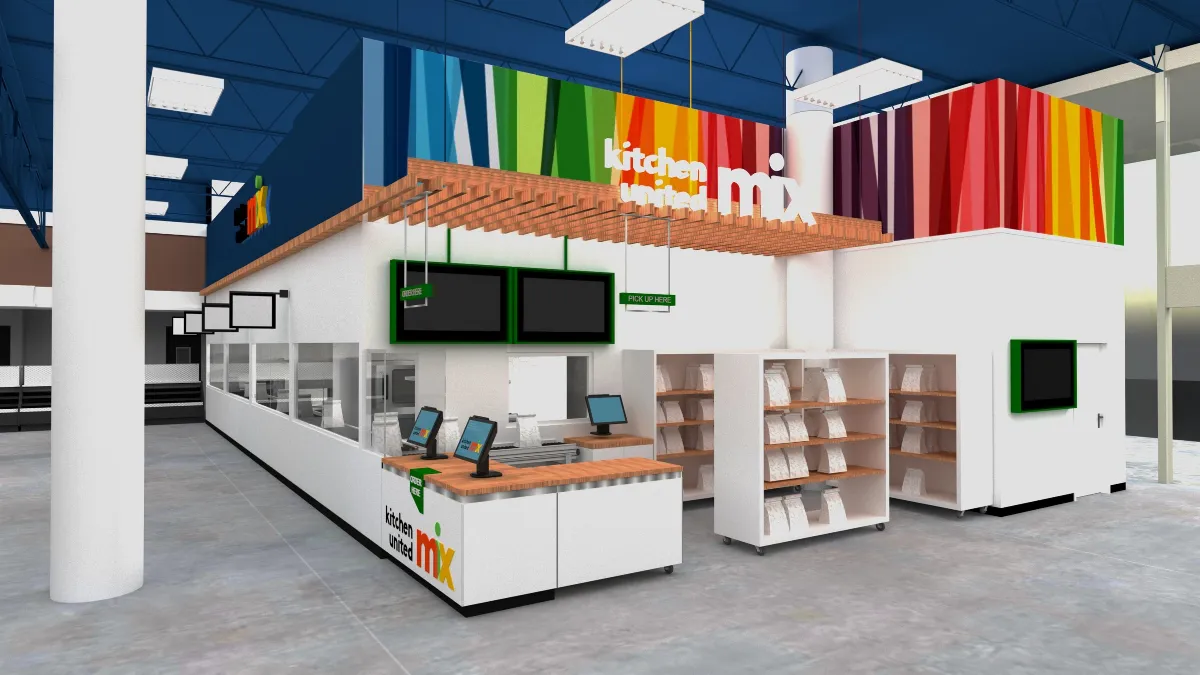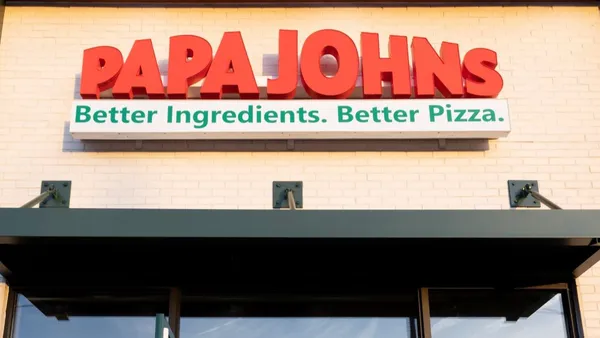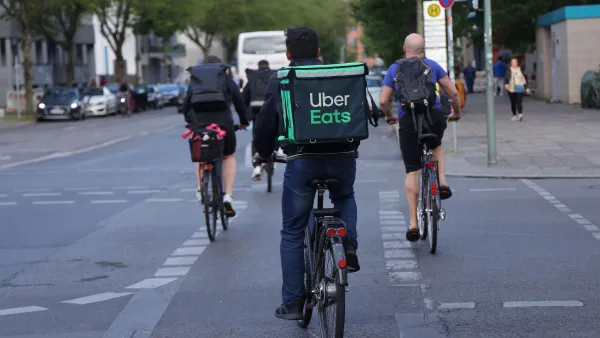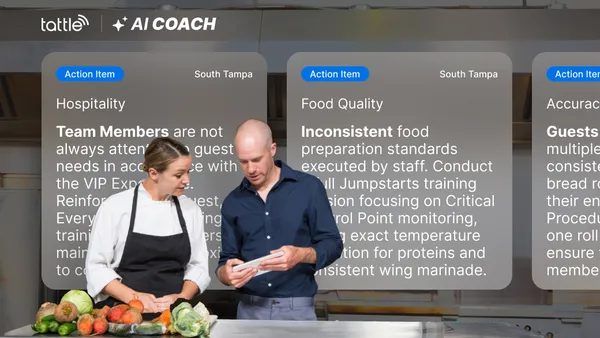Editor’s Note: This article has been updated with a comment from Kroger.
Dive Brief:
- Kitchen United will sell or close all of its physical locations, the company said Tuesday. The ghost kitchen pioneer has already shuttered all eight of its Kroger locations, which made up 44% of its 18-unit footprint.
- Going forward, the company will focus on its proprietary software, which it described in a message to Restaurant Dive as “another core strength of the business.” That software was developed to run the ghost kitchen firm’s physical locations.
- Kitchen United has already transferred its New York sites to Nimbus Kitchens and its Austin location to ChefSuite, the company said. This transition has occurred over the last several months.
Dive Insight:
The closure of Kitchen United’s Kroger locations and impending termination or sale of many Kitchen United MIX units is a major change for a company that had overcome many of the ghost kitchen segment’s troubles — in part thanks to its Kroger outposts and omnichannel approach. This shift is a watershed moment for the greater industry, too, as Kitchen United was one of the first, and one of the only enduring, success stories among ghost kitchen platforms.
Now, Kitchen United joins the ranks of ghost kitchen firms that have suffered unit closures, layoffs or strategy failures in the last two years. In May, Reef lost its deal with Wendy’s, which at one time planned to open 700 Reef kitchens; CloudKitchens laid off staff in September; Wonder abandoned its initial van-based ghost kitchen model in January; C3 closed at least one of its foodhalls at the start of the year; and hotel ghost kitchen firm Butler Hospitality folded last spring.
In March, Kitchen United partnered with Chipotle for a pilot of the chain’s new fast casual concept, Farmesa, in Santa Monica, California. At the time, then-Chief Business Officer Atul Sood said in an interview that this deal was “a good sign” of Kitchen United Mix’s value offering to large chains. He also said the company was in talks with multiple “notable” restaurants interested in partnering with Kitchen United.
In September, Kitchen United promoted Sood to CEO when Michael Montagano left the company for Dog Haus. At the time, both executives said the company had found a sustainable business model for years to come. That model appeared to be focused on retail locations. Ten weeks later, the company has none.
Kroger said the end of Kitchen United’s grocery store operations was unfortunate.
“We apologize for any inconvenience this may create and encourage customers to explore delicious ready-to-eat items in our Deli departments,” the grocery giant wrote in a statement to Grocery Dive.
Kitchen United partnered with Simons Property Group to start opening units in malls early last year. Months later, it raised $100 million from investors, including Kroger, to fund an expansion of its food halls. Kroger and Kitchen United had worked together since 2021, and the grocery store units were a keystone of its approach to ghost kitchens. This spring, Sood said Kitchen United shifted its focus away from malls in favor or Kroger units.
Nimbus, which took over Kitchen United’s New York units, is a commercial kitchen company that rents out kitchen space on a monthly and hourly basis, according to its FAQ. ChefSuite, which snapped up Kitchen United’s Austin operation, is a ghost kitchen company that officially launched in 2021, according to a LinkedIn post by its founder and CEO, Jay Modi.















